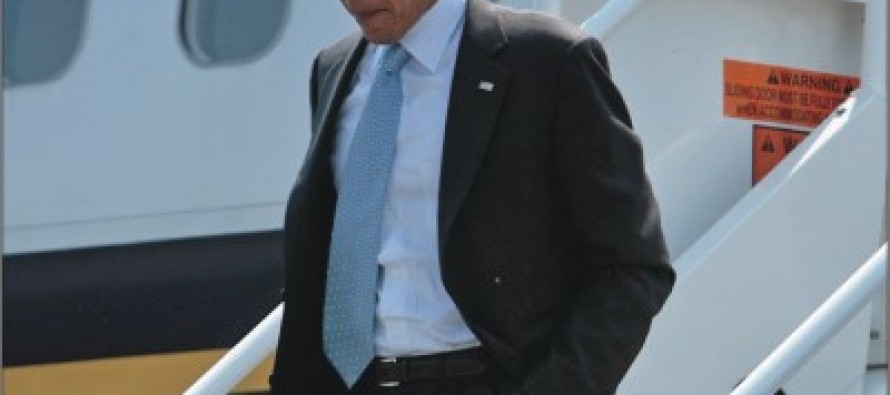Bangladesh as the first stop for President Obama

IT was in the media recently that President Obama’s first foreign trip will be to a Muslim country. Earlier, Obama had said to an Arabic television channel that he would like to extend a hand of friendship to Muslim countries.
What better country is there for him to visit first than Bangladesh, where nearly 87% of the population is Muslim, and there is religious harmony? It bridges Muslim majority countries of South East Asia and the conservative Muslim countries of South and West Asia. The pendulum of religion remains more or less steadily at the centre, and religious and sectarian disagreements are limited to street protests.
The United States was averse to the creation of Bangladesh because the moment was not right for American politics. A breakaway country in the volatile South Asia could and did strain the American political establishment. While the United States was making friends with China the Soviets got an opportunity to remind the Americans that South Asia was still under their sphere of influence.
USSR and India and, by extension, Bangladesh, signed a 25 year treaty of amity and friendship reassuring each other against any American threat. Forty years on, it is the beginning of a new era for both Bangladesh and the US. The two countries should seize this moment to begin a relationship that is meaningful. Bangladesh can be a bridge to a deeper understanding between the West and the Muslim countries.
1971 mauled the subcontinent badly. It took another twenty years for the United States to recognise that South Asia needed more attention than it was getting from it. Until 1995, the US State Department did not have a separate division for South Asia and, barring its intervention in the Afghan war against the Soviet Union, did not engage itself seriously in South Asia.
South Asian countries were lumped together with the Near East and East Asia division, otherwise known as the Middle East. It was only natural that US diplomacy didn’t feature hugely in any of the countries that this mammoth division represented — neither in the Middle East nor in South Asia.
Only after the tragic death of the American ambassador to Pakistan in a terrorist attack, did the US recognise the need to pay attention to the deteriorating situation in South Asia as well as the Middle East. In his second term, President Clinton’s administration created a new South Asia division in the State Department with Robin Rafael, the former wife of the assassinated US ambassador, as the assistant secretary of state for South Asia.
President Clinton visited this region when the Kargil war between Pakistan and India was perhaps already a ticking bomb. Not surprisingly he spent more time in India than in Pakistan or Bangladesh. Bangladesh was not of particular interest to the powers that be at the time, perhaps because it was not party to any regional or international conflict.
With Afghanistan becoming a hotbed for regional terrorism at the beginning of this century, and with the destruction of the twin towers, South Asia got another booster dose of attention from the state department from the Bush administration.
While all this was playing out in Pakistan, Afghanistan and India, Bangladesh was quietly going through a roller-coaster ride between moderate religious practices and homegrown extremism in the name of religion. Quietly, because there was no visible international dimension to the homegrown extremism in this country, therefore it was not worth the attention of the super power(s).
The cultural and religious tolerance that had served Bangladesh well at the time of liberation once again helped it to get out from under the thin veil of self-destructionism. The people relegated extremists to the bins of history, and succeeded in bringing back moderation in their political and cultural life to the centre.
This change was brought about not through violence and intimidation but through the ballot box and a truly successful campaign against extremism. At the same time, change was brought about much in the same way in the United States by the campaign that brought Barack Obama, despite having Hussein as his middle name, to the central theme of humanity first.
Bangladesh proved to the world that with or without the blessings of greater nations its people could think straight and draw the line firmly. Its status as a moderate Islamic country has once again been re-established. It has shown that even with a low literacy rate Bangladeshis still have the cultural and religious savvy to get out of quagmires.
It is a country where reason has hope; where hope cannot survive without reason. And the reason is: Bangladesh is a moderate country where there is religious harmony and respect for others; it is a country which looks forward to a better tomorrow rather than looking back to the nightmares of yesterday. This is why Barrack Hussein Obama should visit Bangladesh first!
Nasim Firdaus is a former Ambassador and Secretary. | Link requested by Mohammad Haseeb Iqbal | original source


